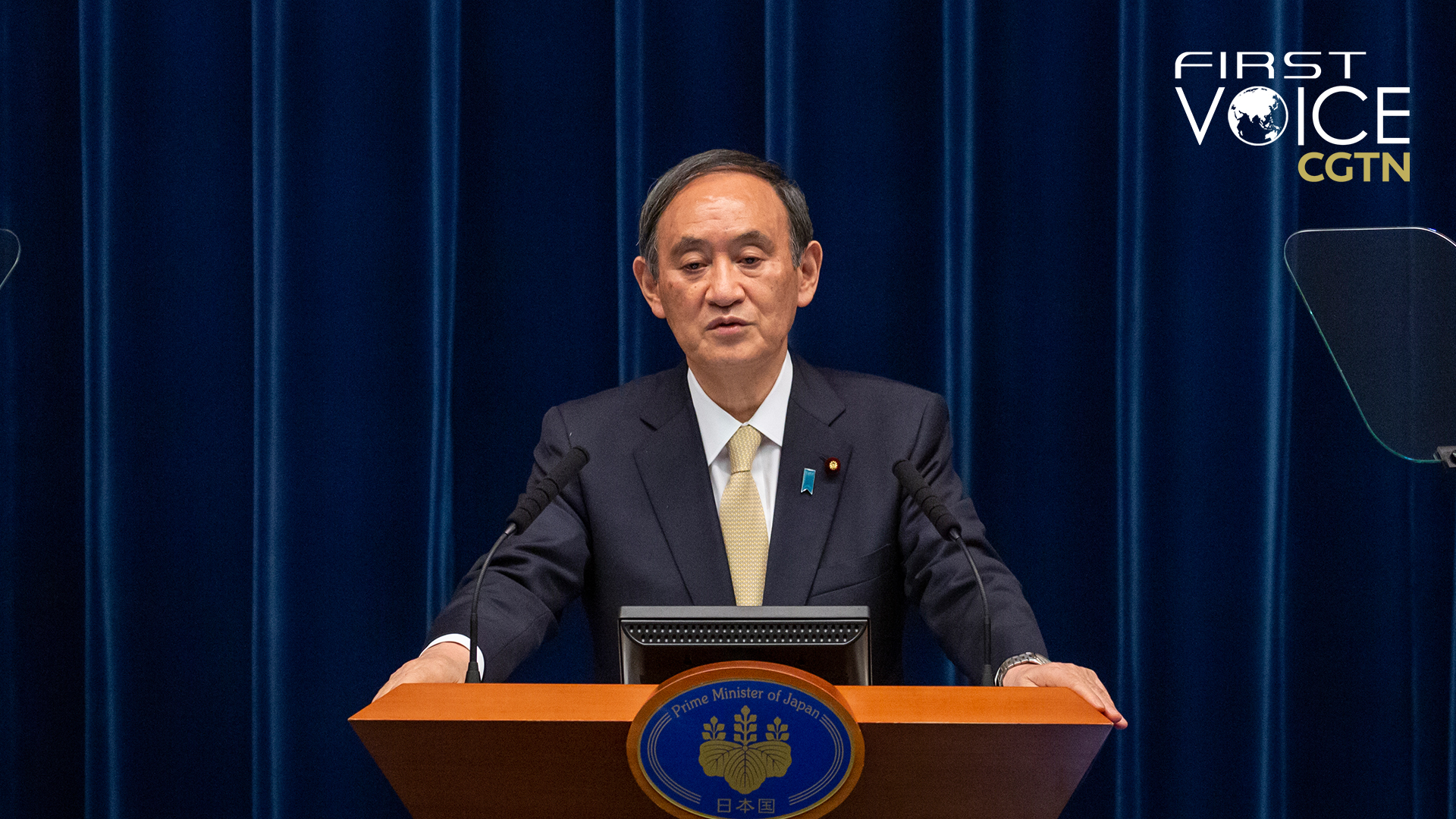
Editor's note: CGTN's First Voice provides instant commentary on breaking stories. The daily column clarifies emerging issues and better defines the news agenda, offering a Chinese perspective on the latest global events.
On April 27, Japan's Diplomatic Bluebook was released to set out its foreign policy priorities. The 322-page document mentioned China 273 times, according to the Global Times' account. It hyped up the "China threat" that has been the central theme in Japan's relationship with China over the past months. It said that China's growing military capability lacks transparency, and "unilateral" actions pose "strong concerns" in Asia and the international community.
However, what was missing from the report is the highlight of the Taiwan Straits. Several weeks ago, when Prime Minister Yoshihide Suga visited the White House to meet with U.S. President Joe Biden, the White House said that the two leaders "underscore the importance of peace and stability across the Taiwan Straits." It was the first in decades.
Suga later walked back on the event and denied Japan would involve itself militarily in the event of a contingency. And although the Bluebook played up the "China threat," it relatively played down the Taiwan issue despite a huge diplomatic push by the United States to focus on it. The phrase of Taiwan being an "extremely crucial partner and an important friend" that "shares fundamental values" is largely in line with previous Bluebook's description in 2015.
This cautious attitude reveals the hesitant approach in Japan to jump head first towards anti-China conflict despite pressure from the United States. It is obvious to everyone that Beijing and Tokyo have a number of stark geopolitical differences and disagreements, yet this does not overshadow the reality that Japan gains little from outright confrontation against China.
In the morning of April 28, Japan's cabinet ratified the Regional Comprehensive Economic Partnership (RCEP), a regional trade agreement that includes China. This is an example as to how despite points of tension, the China-Japan relationship is one defined by mutual interdependency and prosperity. China remains Japan's largest trading partner, and access to China's market is an essential part of the country's national recovery in overcoming COVID-19. Contrary to popular belief, Japanese companies are not leaving China, but in fact have a strong commitment to doing business and expanding in the Chinese market. As a Nikkei report was titled: "Decoupling denied: Japan Inc. lays its bets on China."

In 2020, the number of Uniqlo stores in China has surpassed those in Japan. The picture shows a Uniqlo store in Sanlitun, Beijing, China. /VCG
In 2020, the number of Uniqlo stores in China has surpassed those in Japan. The picture shows a Uniqlo store in Sanlitun, Beijing, China. /VCG
But on the strategic level, Japan has sided with its long term ally the U.S. and adhered somewhat to its anti-China strategy, but remarkably less than other powers in the "Anglosphere." Tokyo's reluctance to push on Taiwan is a stark contrast to Australian Minister of Defense Peter Dutton's unhinged rhetoric earlier on the issue. Although Biden has been pushing a number of countries to make this commitment, this would be a lose-lose situation for Japan.
Tokyo recognizes that even beyond the economic level, heading on a war footing against Beijing is to ultimately impose enormous costs on itself, and thus seeks stability, not instability.
It looks like that Tokyo recognizes Taiwan issue is a hard red line for China. Tensions are already brooding between China and Japan. A push too far against Beijing by Japan would certainly provoke a furious backlash within China and possible surge in anti-Japanese sentiment, which would damage the prospects of Japanese brands and potentially create a military standoff which would be difficult to back down on, putting Tokyo at obvious geopolitical disadvantage against China that increasingly outmatches its capabilities.
By being broadly in line with the U.S.'s demands but not willing to veer outside the line to escalate conflicts with China, these actions fit with Japan's foreign policy of being a more astute balancing act between Washington and Beijing than jumping into the rendition of China as a pure adversary.
In this case, Washington's most important partner in the so-called "Indo-Pacific" is in fact its weakest military link in ensuring a "coalition" to try and upend China's sovereignty on the Taiwan issue. China ultimately remains committed to peaceful reunification and likewise productive ties with Japan, but it is prepared to take steps in order to defend its own interests on that matter. Other regional countries should also be wary of Washington attempting to lockstep them into a potential conflict over Taiwan issue.
(If you want to contribute and have specific expertise, please contact us at opinions@cgtn.com.)

